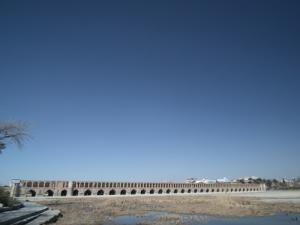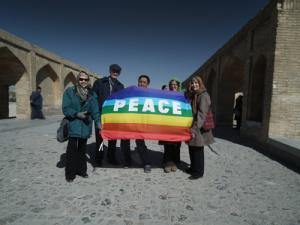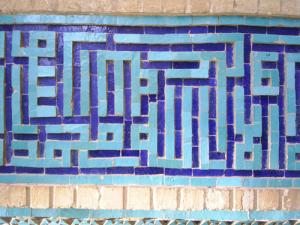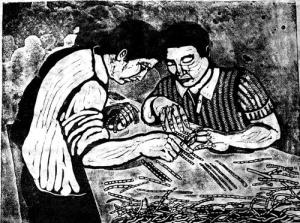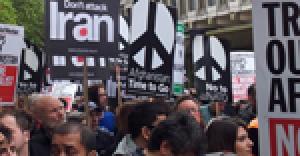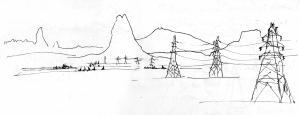The bed of the Zayandeh River in Isfahan, 16 February 2013 Photo: Milan Rai
In Isfahan, the swan boats are hooded. Just like our swan boats on the pond in Hastings, they are in their winter sleep, nestled together along the river bank under their red and blue PVC coats. It is seven years since I visited Isfahan. In May 2006, the white swans were being pedalled among the fountains in the Zayandeh River below the many-arched Kadju Bridge.
The roller-skaters are…


